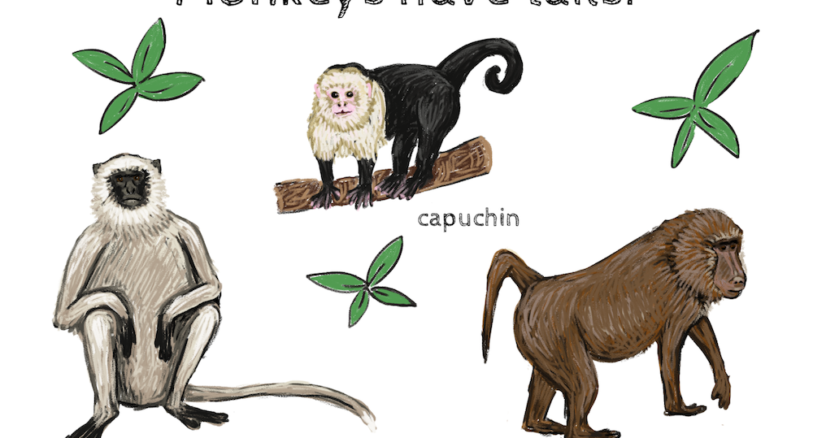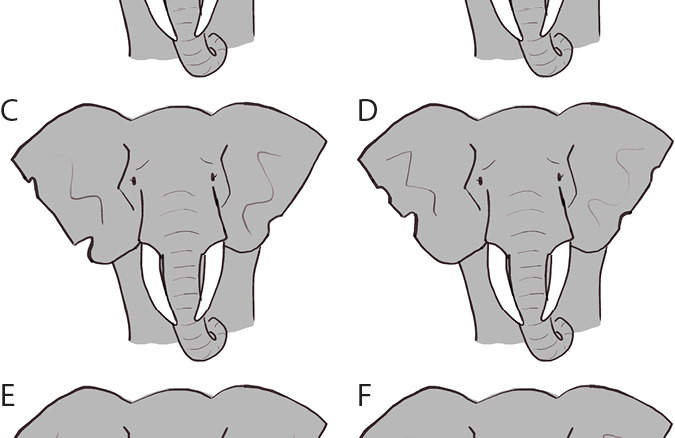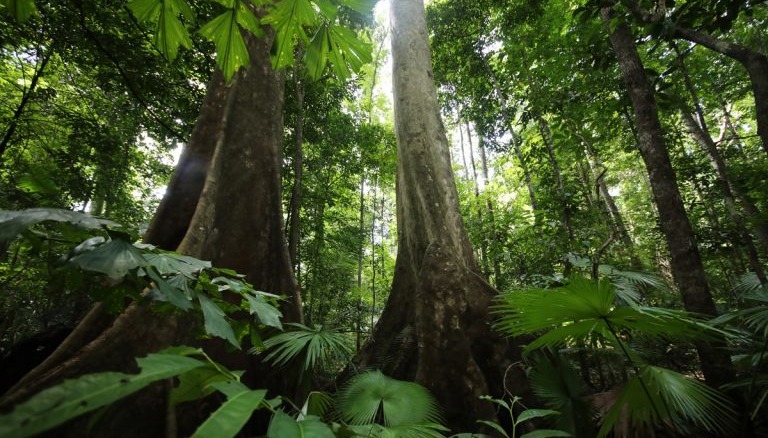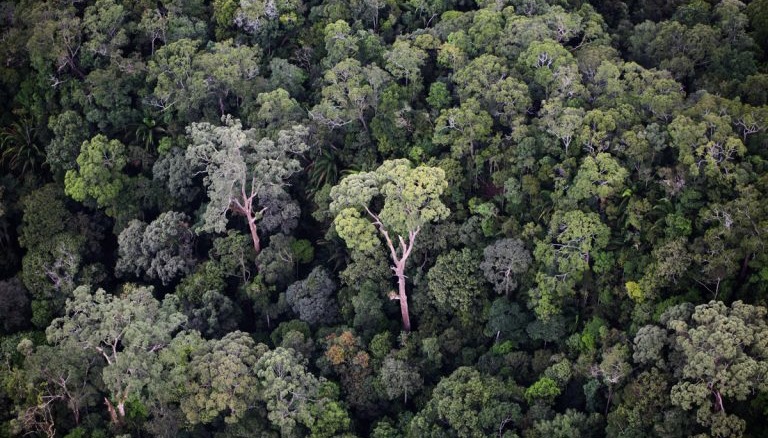By Lisa Algee
3rd–5th Grade (upper elementary/primary)
Note: This is lesson 2 in a 4-part series on the water cycle, photosynthesis, exploring ecosystems, and scientific inquiry in local ecosystems. Find lessons 1, 3 and 4 here (click relevant link).
Overview
(a) What is photosynthesis and why is it important?
(b) How to decipher the meaning of a concept (photosynthesis) by looking at the prefix (photo) and root word (synthesis).
(c) To understand the important role rainforests play with regard to photosynthesis, i.e., lots of trees = more oxygen and water in Earth’s atmosphere. All animals depend on oxygen for survival. In addition, the water cycle (Lesson 1) depends on moisture (water) in the atmosphere, i.e., some of which comes directly from trees through the process of transpiration which occurs during photosynthesis.
Purpose: To build knowledge and awareness about the power of photosynthesis and how all life depends upon this process. With this knowledge, students, teachers, and parents can co-construct meaningful, productive action through activities and future endeavors.
Key concepts: photosynthesis, deforestation, non-renewable sources of energy, greenhouse gas, organelles, chloroplasts, chlorophyll, stomata, absorb, carbon dioxide, transpiration
Research based: Sociocultural theory with an emphasis on co-constructing knowledge and negotiating meaning using Wells (1999, 2002, 2010) model, ‘Spiral of learning and teaching through inquiry’.
Materials: Internet access, books, articles, pen, colored pencils, crayons, markers, and recycled paper.
Common Core Standards:
English Language Arts Standards:
Language:
Vocabulary Acquisition and Use:
CCSS.ELA-Literacy.L.3.4c (third) Use a known root word as a clue to the meaning of an unknown word with the same root (e.g., company, companion).
CCSS.ELA-Literacy.L.4.4b (fourth) Use common, grade-appropriate Greek and Latin affixes and roots as clues to the meaning of a word (e.g., telegraph, photograph, autograph).
CCSS.ELA-Literacy.L.5.4b (fifth) Use common, grade-appropriate Greek and Latin affixes and roots as clues to the meaning of a word (e.g., photograph, photosynthesis).
Next Generation Science Standards (NGSS):
Disciplinary Core Idea Progression:
Earth Space Science Progression (ESS3.A): Energy and fuels humans use are derived from natural sources and their use affects the environment. Some resources are renewable over time, others are not.
Life Science Progression (LS1.C): Food provides animals with the materials and energy they need for body repair, growth, warmth, and motion. Plants acquire material for growth chiefly from air, water, and process matter and obtain energy from sunlight, which is used to maintain conditions necessary for survival.
Physical Science Progression (PS3.D): Energy can be “produced,” “used,” or “released” by converting stored energy. Plants capture energy from sunlight, which can later be used as fuel or food.
Procedure:
Wells’ model, “Spiral of learning and teaching through inquiry,” in action:
I. Tapping into students’ prior knowledge and experiences:
Pre-assessment: (Use pdf)
- When you think of the sun, what do you think of?
- What are some fun experiences you have with the sun? Share them with a peer in class.
- Do you think the sun is important? If so, why? If not, explain why?
- Do you think we could live without the sun? Why, or why not? (Explain your answer.)
- When you look at the word photosynthesis, can you see the prefix photo?
- Do you know what photo means? Can you make a guess?
- Can you see another word within photosynthesis? Can you see the root word synthesis?
- Do you know what synthesis means? Can you make a guess?
- Now that you have examined the prefix (photo) and the root word (synthesis), can you make a guess as to what photosynthesis means?
- What do you think photosynthesis relates to? In other words, this word relates to ______________________________________________________________?
- Can you describe the process of photosynthesis? What happens? (Draw a picture also to explain your answer)
- Do you think the process of photosynthesis is important? Why or why not?
Then, use the pre-assessment questions to open up a dialogue about what students know about photosynthesis and the importance of the sun to our planet. Allow students to share their knowledge and experiences in pairs, small groups, and whole class. Both you and the students can write the word photosynthesis on the whiteboard or Smart-board and examine the word and its parts together.
II. Gathering information:
Students can seek information in books, articles, the Internet, consulting an expert, etc., on photosynthesis. Allow students time to gather information to answer the questions in the Student Photosynthesis Worksheet (pdf).
III. Co-constructing knowledge together:
Note: Allow students time to share their information from their Students Photosynthesis Worksheet with you. You can use the Teacher Information Sheet (pdf) to supplement their information.
IV. Understanding:
Demonstrating understanding through post-assessment and activities (see activities at the end of lesson):
Post-assessment: (Use pdf)
- When you think of the sun, what do you think of?
- What are some fun experiences you have with the sun? Share them with a peer in class.
- Do you think the sun is important? If so, why? If not, explain why?
- Do you think we could live without the sun? Why, or why not? (Explain your answer)
- When you look at the word photosynthesis, can you see the prefix photo?
- Do you know what photo means? Can you make a guess?
- Can you see another word within photosynthesis? Can you see the root word synthesis?
- Do you know what synthesis means? Can you make a guess?
- Now that you have examined the prefix (photo) and the root word (synthesis), can you make a guess as to what photosynthesis means?
- What do you think photosynthesis relates to? In other words, this word relates to ______________________________________________________________?
- Can you describe the process of photosynthesis? What happens? (Draw a picture also to explain your answer)
- Do you think the process of photosynthesis is important? Why or why not?
Activities:
1. Photosynthesis mobile
2. Rainforest food web
3. Food and exercise
4. Sun or tree metaphor
5. Impressionism
Credit: All content created by Lisa Algee. You can contact Lisa at algeelisa[at]gmail.com





